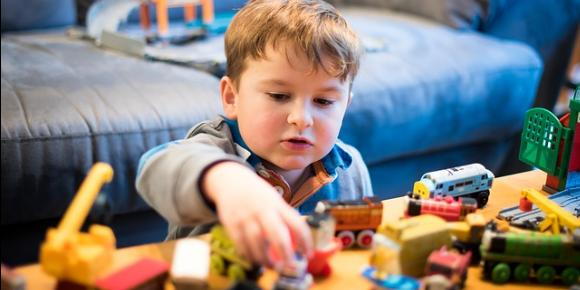
The last thing any parent wants is for their child to get an eye injury, and it’s even worse when the injury comes from a beloved toy.
Kids see all the epic action-adventure films coming out these days and want to be larger-than-life characters like Harry Potter, Iron Man, Luke Skywalker, and Katniss Everdeen, and that means battery-powered wands, Nerf guns, lightsabers, and toy bows all over the playroom and backyard.
What these toys all have in common (apart from being awesome) is sharp edges and pointed ends, which could easily lead to eye injuries. Here are a few simple steps you can take as parents to ensure your children’s eye safety.
The Right Toys For The Right Age Groups
Before you buy your child an expensive lightsaber that can light up and make all the right sound effects, check the packaging. If it says it’s meant for children ages 10 and up, it’s probably not the best toy for your three-year-old girl, no matter how much she wants to be Rey. With some toys, the age restriction is because they’re too complex or delicate to be handled by small children, but with others, it’s because small children are too delicate for the toys.
Eyes are especially vulnerable, and small children don’t always know how to be careful, even when they try to be. We recommend holding off on buying toys with sharp parts for your kids until they’ve developed sufficient hand-eye coordination to use them safely.
You don’t want your kids (or their toys) ending up in situations like this:
Other Hazards To Watch For
Sharpness and age-inappropriateness aren’t the only potential risks for young eyes. Germs and harsh chemicals are just as dangerous, but might be harder to spot. Even if a toy is soft and round, it could still be breakable, flammable, covered in lead-based paint, or difficult to wash. Any toy covered in chemicals you wouldn’t want in your toddler’s mouth also isn’t safe near his eyes.
Legitimate toy manufacturers must follow certain safety regulations, so parents who only buy from trusted brands will have an easier time avoiding these hazards, but it’s always wise to read the label thoroughly before buying any new toy.
Enlist The Help Of Older Siblings
Maybe you’re already being careful to only buy age-appropriate, non-toxic toys for your child, but that task becomes a lot harder when you have more than one kid and there’s a significant age difference between them. How can you still make sure everyone’s playing with their own eye-safe toys when all the toddler ever seems to want is the tween’s Legos?
Your older children might be old enough now to become part of the solution. Talk to them about how important it is to put their toys away so they won’t be easily accessible. When sharp or otherwise hazardous toys are in reach, get them to help you supervise their younger siblings. Eye safety is something the whole family should be on the lookout for!
An Ounce Of Prevention
Children’s eyes should never be in danger from their own toys, but eye safety is an easy goal to achieve with the right precautions. If you have any questions about how to protect your children’s eyes, don’t hesitate to ask!
Top image by Flickr user JD Hancock used under Creative Commons Attribution-Sharealike 4.0 license. Image cropped and modified from original.




